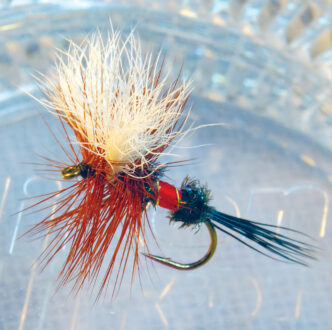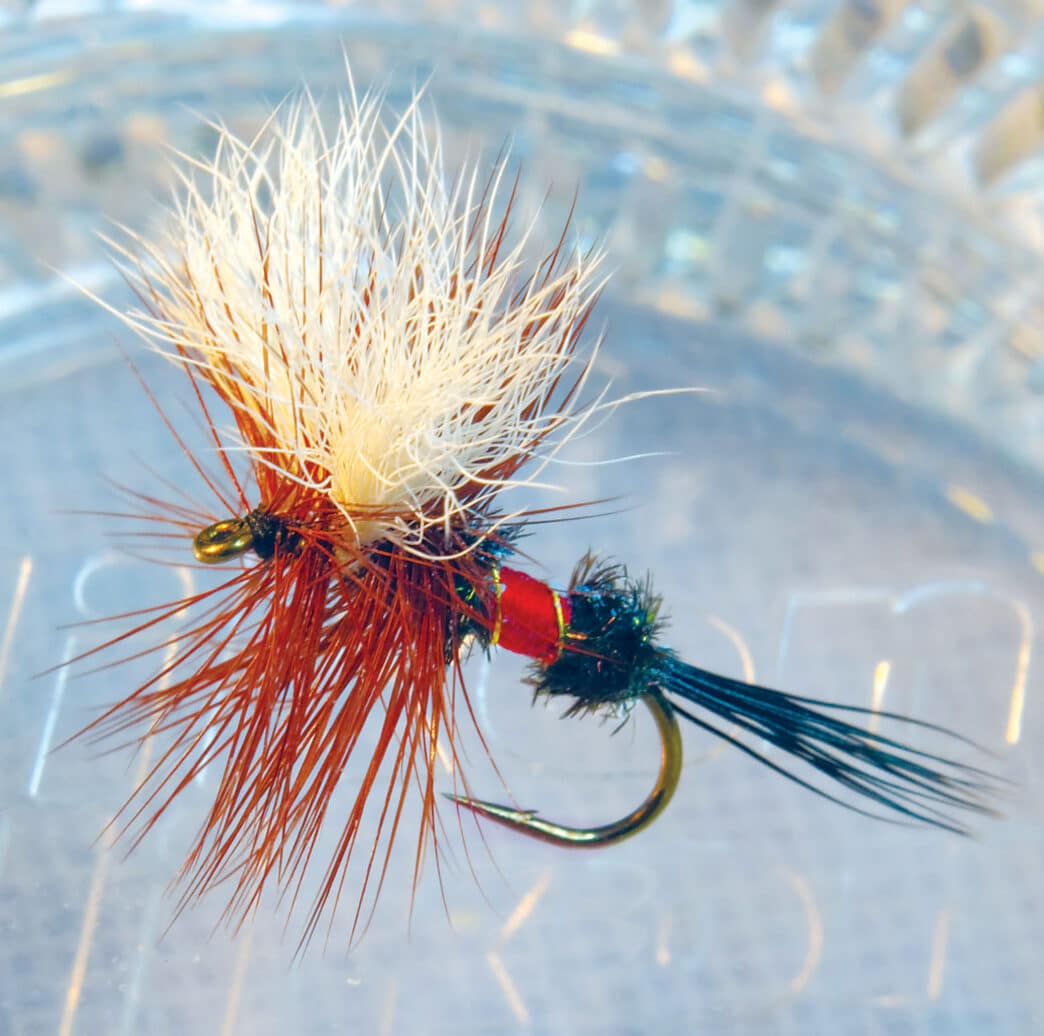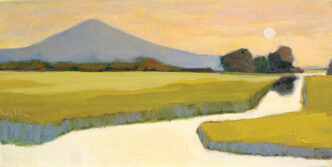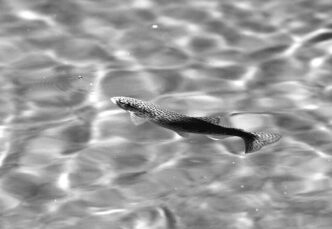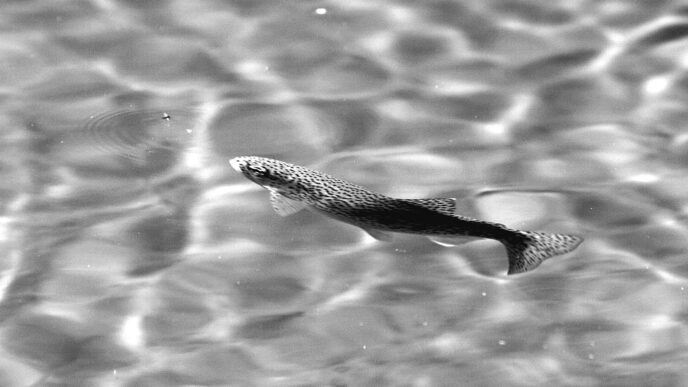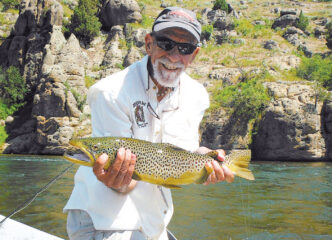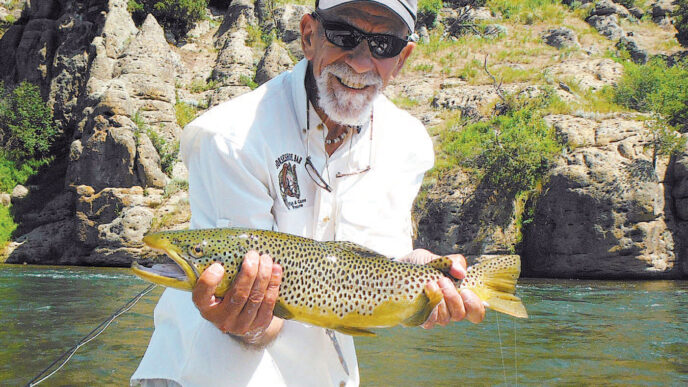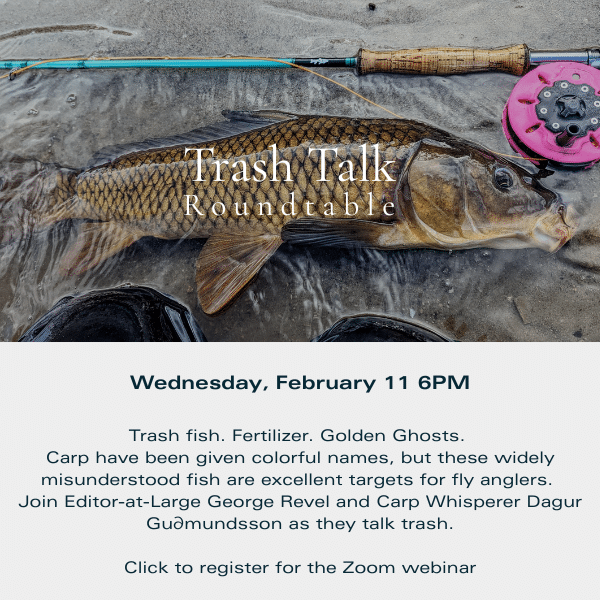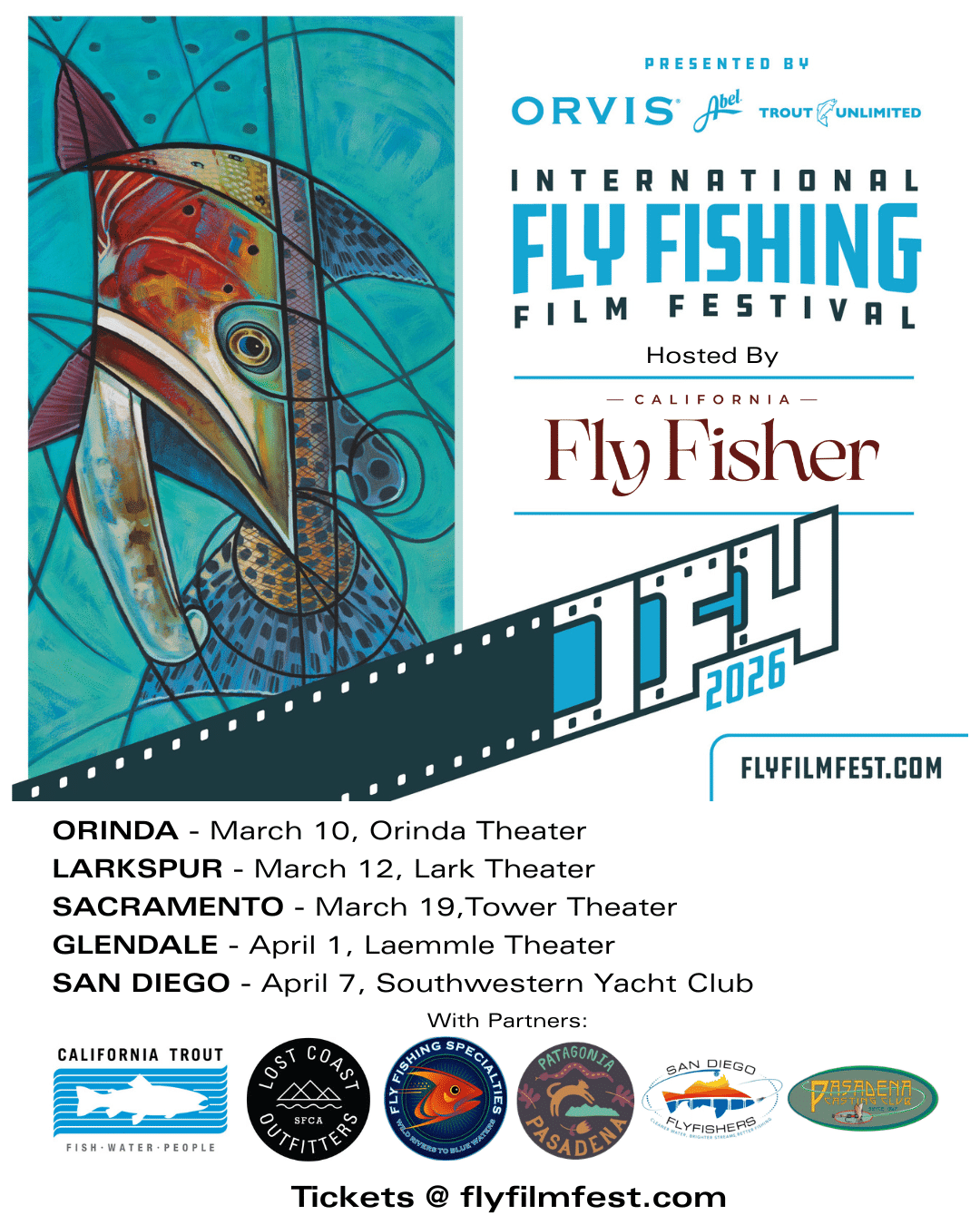A wise man is he who knows that he doesn’t know.
— Socrates
Try the cocaine. It’ll boost your confidence.
— Sigmund Freud
I have a couple of degrees in philosophy. If they had mass, they would make good paperweights. People often inexplicably think that I am therefore a qualified psychologist. In case you are thinking to yourself, “Of course you are,” let me preemptively inform you that philosophy is as related to psychology as it is to fly fishing, which is barely.
So in nodding recognition to my qualifications, I am going to write something about fly fishing and psychology.
The following are several vignettes or episodes provided with the hope of reaching a scientific diagnosis of our communal delusions and dependencies as fly fishers and maybe provide a therapy for our disorders, ideally, one that requires the prescription of soporifics and/or hallucinatory substances.
Episode 1
A guy comes into a fly shop at which I am “working” and asks if we have any Royal Wulffs. A simple request, yet somehow banal in this day of überrepresentational, sophisticated pieces of art that we still call “flies.” “Sure we do,” I say, directing him to the bin, then asking him where he is going to use them. Knowing the water he mentions, I knowingly and salesmanshipfully ask if he has tried any one of several other more modern flies. His confident reply is, “ Why would I? Royal Wulffs are the only flies that work.” A forceful argument, if somewhat fallacious logically. (To be specific, the fallacy is that of asserting the consequent, which, coincidentally, was also the name of the fly I was trying to sell the guy — the Consequent.)
“Mister, ‘Royal Wulffs are the only flies that work’ because they are the only flies that you use, not ‘I only use Royal Wulffs because they are the only flies that work.’” But to say that would have been smart-assy and potentially counterproductive to selling him any flies at all. And that guy was going to fish those Royal Wulffs confidently and confidently either catch fish or not and have a good day because he fished his water swathed in his confident belief that he had the right fly on the end of his leader. But if just maybe he tried something different on occasion, he might have found a fly even more productive than the Wulffs, and that might have made for an even better day on the water.
Episode 2
Many years ago, I was headed to fish one of California’s more noted trout rivers with a buddy who had recently fished that same river under the direction of a well known and experienced local guide. They had fished all day and had caught a couple of good-sized, if not remarkable fish. As my buddy and I were en route to the water, based on his recent experience, he informed me that the only way to fish this particular river effectively is to use a “right-angle” nymphing technique. “It’s really the only thing that catches fish on this river,” he let me know, imbued with the confidence given him from his recent moderate success and repeating what the guide had told him.
We got to the river, and as we surveyed the water, I noticed a few bugs flying and barely any fish rising, but some. My buddy rigged his rod with the only rig that would work on that river, a right-angle nymph rig. In my naïve enthusiasm, I rigged a dry fly of unremembered taxonomy — probably a nonspecific attractor type pattern, like a Royal Wulff. By lunchtime, I had caught several fish on my dry fly and was really enjoying myself, mainly because dry-fly fishing is a lot of fun. My buddy’s tally, using his most effective technique, was (carry the one over the square root of the remainder of …) exactly none.
Remarkably, over lunch, he reiterated to me why the right-angle nymphing technique is the best technique on that particular river, and that was why he was genuinely happy to continue with it after lunch. I bemusedly admired his focus and/or delusion. He was a man who was confident in his technique, and that very confidence made for a happy (if unproductive) day on the water for him. The only cloud shadowing this sunny confidence of his was the nagging evidence of witnessing me catching at least 10 fish doing something else, while his technique resulting in a big zero for the day.
This really happened.
Just to show you that I’m not self-aggrandizing, with this episode serving as a sly example of my cunning fly-fishing instincts and skills, let me tell you about another in which I was the confident one.
Episode 3
On another river, over a decade ago, I was fishing with Lisa Cutter and another buddy. I was nymphing a likely spot, and Lisa was on the bank behind me, watching. After a bit, Lisa asked me if I always did it that way — nymphing, that is. “Yes, Lisa,” I said with the smug confidence of a pro, although Lisa is far more a pro than I’ll ever be. “I’m trying to get deep,” I continued professorially, “which is why I have such a long, thin leader and several split shot above my fly, and I am also trying to get a total dead drift, which is why I have some slack in my mended line and which is why I am holding my rod high and which is why I have this giant wad of silicone-lubed yarn providing me a means of detecting a fish’s strike.” I was pretty confident about what I was doing. After all, I had been successful with that rig many times before. I’d been around the block, nymphing-wise.
“I see,” said Lisa politely, then politely asked if she could fish the run after watching me unsuccessfully, yet confidently fish it thoroughly.
Lisa rigged a nymph in a way that was as different from my rig as a philosopher is to a psychologist, and she fished it through the run as if trying sarcastically with every cast and movement of her rod to rebut the way I had done it. And worst of all, with no exaggeration, she hooked at least three sizeable fish and maybe five. Had she not been there, I could have confidently fished all day long and gone home confident that my lack of results was because “the fish were just not feeding” or some such nonsense we tell ourselves in those circumstances.
Episode 4
On a beautiful bluebird early fall day on the Rogue River, I was fishing with acerbic North Coast steelhead sachem Al Perryman. I was confidently swinging a Muddler Minnow tied at the end of a long mono leader off a floating Scandi line. I was casting like a champ, at least in my own mind, and I was digging what I was doing. I really like steelhead fishing, and I felt that I was just doing everything right and was happy because of that. Make a rocket-velocity, tight-loop cast, throw a little upstream mend, swing through the run. Take a step, repeat the process.
I was in the groove, in my element, and lathered up in confidence. Al was standing behind me in the casting-safe zone right behind my back, watching my progress through the run and saying nothing. Aware of his attention and the observational enthusiasm of watching a skilled angler such as me confidently working a run, I asked him, “What would you do differently, if you were fishing this run?” I expected him to say, “Not a thing.” I was, after all, doing everything right, I was sure of it. Just ask me. But he didn’t say that at all.
“Why are you making that upstream mend?” was what he did in fact say. All of a sudden, my confidence left me, and I felt like a philosophy student who had mistakenly wandered into an advanced psych class and was asked by the professor to distinguish the id from the ego in the writings of Adler, Jung, and Freud.
“Er . . . ” I said, trying to preserve my now teetering ego . . . or id, or whatever. “Well, I’m trying to set up my swing so that my fly is in the zone for as long as possible.” “You are aware that your fly is on or near the surface and that the water you are fishing over is probably six or eight feet deep? You asked what I’d do, and what I’d do is make a downstream mend instead. Make the fly go faster, not slower. Provoke the fish. You’ve got to make them want to move that six feet to your fly. Piss them off.” On the next cast, I unconvincedly and unconfidently made a downstream mend and made my fly swing faster. Goddammit and I swear to God this happened — a steelhead took my fly! I even landed it.
The point of these little stories, all true, is to point out in as longwinded a way as possible that confidence is a double-edged sword when it comes to fly fishing, especially if it is called “expertise.” On the one hand, having some confidence in your flies, techniques, and equipment makes for a fun day — it’s not fun to have no confidence in any or all of those things, to be constantly unsure of yourself. But on the other hand, if you totally know what you are doing, if you are totally sure that what you know about fly fishing is correct, complete, and in all ways just friggin’ awesome, you are probably wrong. And you won’t learn anything new with that kind of attitude. If you stop learning, what is the point of continuing to fly fish at all? You should just quit. Matter of fact, now that I think of it, you should just quit regardless. Fewer folks crowding the water that I’m fishing would make me fish more confidently.



